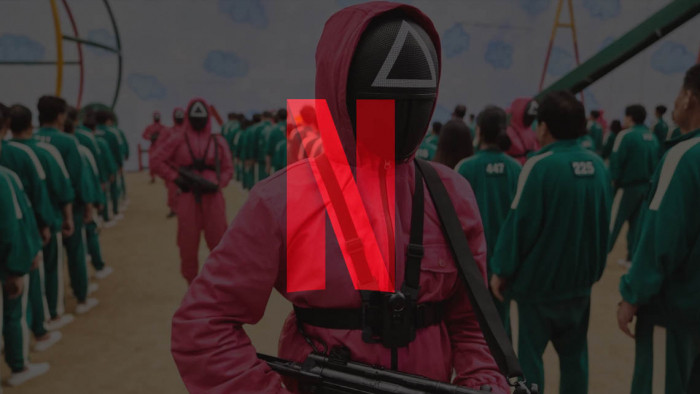Is there anything we can do to stop our governments killing us all?
As democratic countries start acting like autocrats, what can we can do to stay alive?


How much control do you actually wield over your ability to keep yourself alive? You might look both ways before crossing the road, you may adjust your diet to reduce the risk of fatal disease, and you might try and avoid conflict wherever possible.
Ultimately though, there’s still a chance you could be hit by a car, or succumb to a sudden illness, or be murdered in cold blood tomorrow, and there’d be very little you could do about it. Still, there is some comfort in the knowledge that, while we may never be able to protect ourselves against our demise entirely, we can take various steps to mitigate its likelihood. Without this vague sense of autonomy over our lives and our fates, we would despair.
But what about war? How do you stop yourself perishing in conflict? Well, you could avoid joining the military, which is a significantly easier feat in a country like the UK which, mercifully, has no present policy of conscription, nor are we involved in or facing any domestic conflict.
But that opt-out barely exists if you happen to live in, for instance, Syria. Not only is the country still in the midst of a seven-year-long civil war, but of the 353,593–498,593 casualties estimated by the Syrian Observatory for Human Rights (between March 2011 and March 2018), 106,390 are expected to have been suffered by civilians. Which means between a quarter and a third of those killed so far had no active involvement in the conflict, at least in the sense of serving within a military. It’s an obscene statistic. A death sentence dictated by accident of birth, by having the misfortune to live within a region mired in war.

Syrians drink water from a pump in Douma on the outskirts of Damascus on 16 April
Syria’s president Bashar al-Assad has won three elections (in 2000, 2007 and 2014), each of them granting him seven-year terms, claiming a vote share of 99.7%, 97.6% and 88.7% respectively. Only the latter 2014 election (three years into the civil war) was contested, and opponents condemned it as a ‘sham.’ The Syrian people have had very little to no meaningful way of opposing their head of state democratically.
Nor do they have any influence over foreign involvement in their own conflict. Russia, Iran, Iraq and Lebanon support Assad, while the US, UK, France and (supposedly) Turkey support those who oppose the regime. Support comes in the form of arms, troops, aid and air strikes. Though the war is taking place within Syria, and causing the loss of hundreds of thousands of Syrian lives, it is not contained to Syria, nor fought exclusively by Syrians - but they are paying the price
The best hope for citizens of a country that finds itself treated as a playground for imperialist interests, and one with limited access to democracy, then, is that those citizens of external interfering nations manage to successfully oppose their own governments’ interventions.
Can the British people influence the fate of Syria? In the early hours of Saturday morning, coordinated air strikes were carried about by the British, US and French armies, with Theresa May’s stated aim: “to degrade the Syrian regime’s chemical weapons capability and deter their use.” Parliament was not consulted, as it was in 2013 when David Cameron’s government lost a motion to conduct similar airstrikes in Syria, and in 2003, when the UK parliament voted to invade Iraq - a war that would prove farcical in its unpopularity, while doing much to destablise the Middle East.

The march against the war in Iraq attracted over a million people in London in February 2003
So, does democracy, as it functions here, allow the British people to influence their own fate? Political apathy is rife and opportunities for participation are scant. The average individual might feel that their single vote at a General Election does not make a significant difference in the wider scheme of things. This is in part due to the existence of ‘safe’ seats within our absurd and outdated FPTP system; the alienation inherent in party politics, and from politicians; and the disproportionate influence wielded by the powerful - by lobbies and by the media. However, we can apparently be contented knowing that our vote means we can instil or remove a government, and that elected MPs will represent our interests within Westminster.
So we must ask a very serious question: if a minority government can commit what is tantamount to an act of war, apparently on our behalf, without consulting the institution which is supposed to represent our political participation, do we exert any control over our own fate whatsoever?
The legality of the Western allies intervention warrants extreme scrutiny. Oona Hathaway, a professor of International Law at Yale, has comprehensively and succinctly debunked all legal justifications given thus far; including the notion that Syria’s alleged use of chemical weapons on its population would permit external retaliation, and the UK’s argument that it constitutes a humanitarian intervention, which - per the UN charter - “required action through the U.N., not around it.” That the US, Britain and France have chosen to act unilaterally, having gone so far as to bypass the United Nations and in clear flagrance of international law, is very grave.
Will these nations be held accountable? If they suffer no reprisal for an illegal intervention, it would serve to highlight an alarmingly fragile level of authority held by those international institutions which aim to preserve global peace.
If the United Nations - which states in its own charter that its purpose is to “save succeeding generations from the scourge of war, which twice in our lifetime has brought untold sorrow to mankind” - does not have sufficient power to enforce international law, then how can it also realistically prevent the outbreak of a future war? Decisions are being made - ostensibly on our behalf - by autocratic powers refusing to abide either the democratic process, nor the laws in place to protect human life.

Has the United Nations become obselete?
With this intervention, the government has made the British public culpable for whatever further devastation will be wrought upon the Syrian people as a result, and increased the risk for potential repercussions beyond. Speaking on the situation in Syria, the UN secretary general Antonio Guterres warned “the Cold War is back… [there is] escalation, fragmentation and division as far as the eye can see, with profound regional and global ramifications.”
The guileless Donald Trump - who did not get Congressional approval for the US’ involvement - has already made explicit the link between America’s intervention in Syria and a proxy war with Vladimir Putin’s Russia. In this context, the strikes must be seen as an attempt to escalate - either by antagonism or attempted deterrence - precarious tensions between the world’s most powerful countries. Nations who happen to be in possession of huge stockpiles of nuclear weapons, and who all seem more than willing to wield their power undemocratically.
What can we do, as individuals, to prevent autocratic superpowers determined to involve their monstrous apocalyptic ‘deterrents’ in aggressive geopolitical posturing? What can be done if they refuse to abide the will of their own people and the institutions that hold them accountable? How do we opt-out of a senseless nuclear annihilation at the whim of someone acting in the interests of no one?
It seems - and is - glib to conflate the tangible, ongoing threat of violence facing the Syrian people with anxiety over a more hypothetical scenario of total, global destruction but the threat is there. It’s not one we want to think about, nor should we have to. This is crucial. In a reasonable world, no one would be forced to shuffle between days worrying that their existence might be pointlessly extinguished. Wrestling endlessly with the notion that total oblivion could be but a push of a button away.
Courses of military action should never be allowed to be made in our name, without even so much as a cursory attempt to adhere to democratic process. The power of nation-states - and their rulers - should never be allowed to become consolidated so absolutely that international law can be rendered meaningless. We cannot allow ourselves to become resigned to a potential apocalyptic catastrophe beyond our control.
A powerful few want the global whole to feel incidental in determining all of our futures, that it’s out of our hands and that we just have to learn to live in a state of perennial anxiety, or do our best to ignore it. We don’t have to accept that this is just the way things operate, because it isn’t, nor that there’s nothing we can do, because there is. When power starts disregarding democracy and the laws in place to keep us safe, then the current political structure must be considered broken, and we must urgently strive towards a new one.
We presently have very little power over our fate, and it seems to me like we ought to start demanding it back.
(Images: LOUAI BESHARA/AFP/Drew Angerer/Getty)
Latest
Related Reviews and Shortlists


The best Doctor Who episodes, ranked








